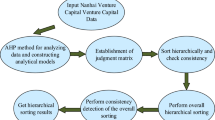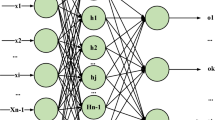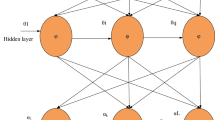Abstract
The foremost part of the leisure tourism enterprise management system is evaluated and studied to explore the financial risk of leisure tourism enterprise and find the loopholes in enterprise risk management. First, the current financial risk management of tourism enterprises is evaluated, using the solvency of corporate finance, capital structure, operating efficiency, and profitability as indexes. Then, the backpropagation neural network (BPNN) model is constructed through the neural network in deep learning. Consequently, the BPNN algorithm model is used to identify and address risks and analyze the financial risks in the risk management system of leisure tourism enterprises. The results show that the shareholders' equity ratio has a great influence on the financial security of tourism enterprises; most of the tourism enterprises have a good financial situation, and most of them do not have large financial risk, and most of them can counter the debt risk properly. Thus, the BPNN model can effectively improve the efficiency and quality of the risk management system in traditional tourism enterprises. The results can help tourism enterprises utilize the enterprise management system better.













Similar content being viewed by others
References
Bhattacharya A, Dutta A (2019) Demographic factors impacting the financial risk tolerance of retail investors of urban West Bengal. Indian J Finance 13(9):22–31
Brunner-Kirchmair TM, Wiener M (2019) Knowledge is power—conceptualizing collaborative financial risk assessment. J Risk Finance 20(3):226–248
Castellano R, Cerqueti R (2020) Exploring the financial risk of a temperature index: a fractional integrated approach. Ann Oper Res 284(56):234–241
Chen M (2021) Perception of leisure agricultural tourism image based on wed text analysis: case of yearning tea plantation. In: E3S web of conferences, vol 235, No. 3, p 02013
Cho BK (2019) A study on the effects of workplace and learning dual system on sustainability, adherency degree and satisfaction of industry-university cooperation. J Tour Leisure Res 31(1):417–435
Ghanaati A, Sjblom J, Faghani E (2020) Design of a virtual test cell based on GMDH-type neural network for a heavy-duty diesel engine. Proc Inst Mech Eng Part D J Automob Eng 13(1):132–143
Glushchenko AV, Slozhenkina MI, Samedova EN et al (2020) Financial risks of sustainable development of small agricultural enterprises assessed to ensure national food security. IOP Conf Ser Earth Environ Sci 548(12):82–91
Gorban AN, Mirkes EM, Tukin IY (2020) How deep should be the depth of convolutional neural networks: a backyard dog case study. Cogn Comput 12(1):388–397
Kim KI, Pak MI, Chon BP et al (2020) A method for underwater acoustic signal classification using convolutional neural network combined with discrete wavelet transform. Int J Wavelets Multiresolut Inf Process 87(14):61–65
Li R (2020) Research on treatment of retaining wall foundation with geosynthetics based on BP neural network. Key Eng Mater 852(1):220–229
Li Y, Jiang W, Yang L et al (2018) On neural networks and learning systems for business computing. Neurocomputing 275:1150–1159
Lin Y (2020) Preliminary study on tax risk management of tourism companies under vie framework. Operators 34(8):251–252
Liu M (2019) Discussion on the construction of financial risk control system of electric power research institutes under the background of informational. IOP Conf Ser Earth Environ Sci 252(3):032051
Lopes P, Almeida L, Pinto J et al (2019) Open Tourist Information system: a platform for touristic information management and outreach. Inf Technol Tour 21(4):577–593
Moster B P, Naab T, Lindstrm M et al (2020) GalaxyNet: connecting galaxies and dark matter haloes with deep neural networks and reinforcement learning in large volumes. 99(12):54–59
Nabawy M, Ofori G, Morcos M et al (2020) Engineering physics and mathematics risk identification framework in construction of Egyptian mega housing projects. Ain Shams Eng J 19(4):34–36
Panda S, Panda G (2020) Performance evaluation of a new BP algorithm for a modified artificial neural network. Neural Process Lett 51(4):311–315
Salehi M, Bayaz MLD, Mohammadi S et al (2020) Auditors’ response to readability of financial statement notes. Asian Rev Account 20(11):145–147
Song ZF (2018) Exploration on risk control of China’s tourism enterprises from the perspective of financial audit. Audit Financ Manag 373(8):36–38
Takacs A, Zink N, Wolff N et al (2020) Connecting EEG signal decomposition and response selection processes using the Theory of Event Coding framework. Hum Brain Mapp 71(8):11–13
Verreynne ML, Williams AM, Ritchie BW et al (2019) Innovation diversity and uncertainty in small and medium sized tourism firms. Tour Manag 72:257–269
Xiao ZZ (2020) Application of deep learning in management practice. Future Dev 42(9):57–63
Xiao R, Li K, Sun L et al (2020) The Prediction of liquid holdup in horizontal pipe with BP neural network. Energy Sci Eng 10(3):98–103
Xie J, Huang BH, Chen SX et al (2020) Research on the application of deep learning technology in investor suitability management. Financ Horizon 31(6):64–69
Yadav AK, Chandola VK, Singh A et al (2020) Rainfall-runoff modelling using artificial neural networks (ANNs) model. Int J Curr Microbiol App Sci 9(3):127–135
Yan YN, Su XW, Wan ZL (2020) Application of deep learning technology in customs risk screening. China Insp Quar 1(3):26–32
Zabashta EY (2019) Theoretical bases of management of enterprise risks. Management 29(1):9–21
Zheng RX (2019) Research on risk management system of tourism enterprises based on internal control. Manag Obs 12(8):17–19
Zhi JG (2020) Research on enterprise financial risk identification and internal control countermeasures. Financ Circ (Acad Ed) 540(3):216–216
Zhou Y, Li S (2020) BP neural network modeling with sensitivity analysis on monotonicity based Spearman coefficient. Chemom Intell Lab Syst 200(12):103–107
Acknowledgements
This research was supported by 2020 Zhejiang Provincial Department of Education Visiting Engineer Project: "Enterprise-in-school, school-in-enterprise" cooperative practice teaching model research (No.FG2020149).
Author information
Authors and Affiliations
Corresponding author
Additional information
Publisher's Note
Springer Nature remains neutral with regard to jurisdictional claims in published maps and institutional affiliations.
Rights and permissions
About this article
Cite this article
Qian, W., Ge, Y. The implementation of leisure tourism enterprise management system based on deep learning. Int J Syst Assur Eng Manag 12, 801–812 (2021). https://doi.org/10.1007/s13198-021-01103-0
Received:
Revised:
Accepted:
Published:
Issue Date:
DOI: https://doi.org/10.1007/s13198-021-01103-0




